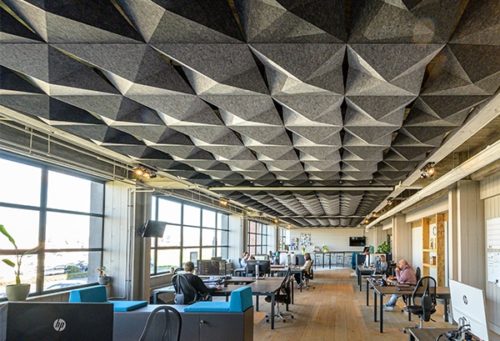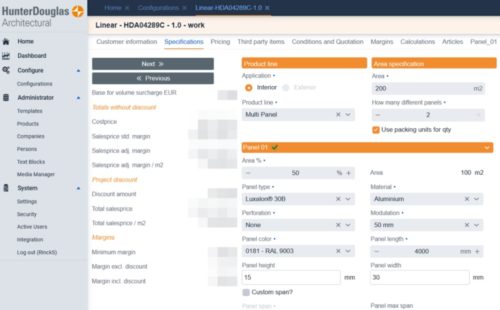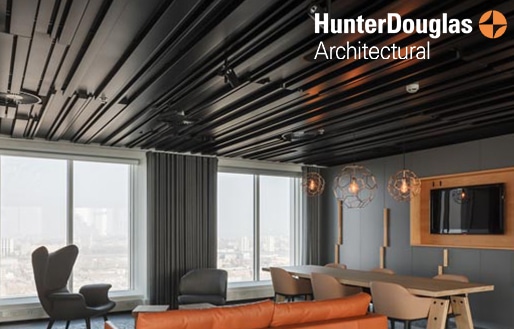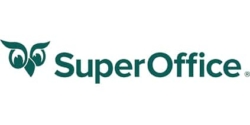Hunter Douglas
Hunter Douglas Architectural is a Dutch company with offices worldwide, collaborating with architects and designers globally to be at the forefront of suspended ceilings and wall coverings.
While the suspended ceilings themselves are not particularly complex products, the possibilities are indeed endless, including colors, materials, profiles, suspension systems, finishes, and more. With the current manual selection process, employees find it challenging to quickly and effectively create quotes since each quote can involve around 8 to 15 item numbers. This may not seem too daunting, but considering the choice of hundreds (if not thousands) of item numbers, it requires extensive knowledge, time, and attention. Additionally, products that are less frequently sold may be overlooked, which is a waste. Moreover, determining the correct quantities per item can be difficult.
In the past, Hunter Douglas Architectural attempted to address this through various Excel calculations, resulting in a tangle of files and an array of versions being used, leading to consequences.
Freedom and Flexibility
The different sales offices have the freedom to work in their own ways. While these freedoms remain essential, Hunter Douglas Architectural wants to introduce a more standardized approach (e.g., uniform calculation methods, quotes, etc.). After implementing Merkato, the sales offices can still decide which standard margins to use for each product group. Additionally, they can adjust margins and apply product discounts as desired in each quote. The “old” method and the Merkato method have one thing in common: the offices are evaluated based on the results at the bottom line. How they achieve this is up to them, and Merkato does not impose any limitations; instead, it facilitates this freedom through flexibility.

The Golden Methods of Merkato
With the implementation of Merkato, everyone will be able to create quotes quickly and accurately. Key users in the Netherlands can now draft a simple quote in 2 minutes, significantly faster than the 5 to 15 minutes it took previously.
Integration with SuperOffice (the CRM system) is also crucial for Hunter Douglas Architectural, as relevant information from Merkato is used in SuperOffice to generate various reports (such as the quote in PDF format, budget price, square meters, etc.). Moreover, employees will be able to clone or version quotes in Merkato, which is useful when multiple contractors request quotes for the same project. By cloning, SuperOffice only calculates the sales opportunity once, as only one contractor wins the bid.
In conclusion, Hunter Douglas Architectural leverages one of the golden methods of Merkato: speed + uniformity = quality. Not only in the quotation process but also in terms of management, pricing, and maintenance.





